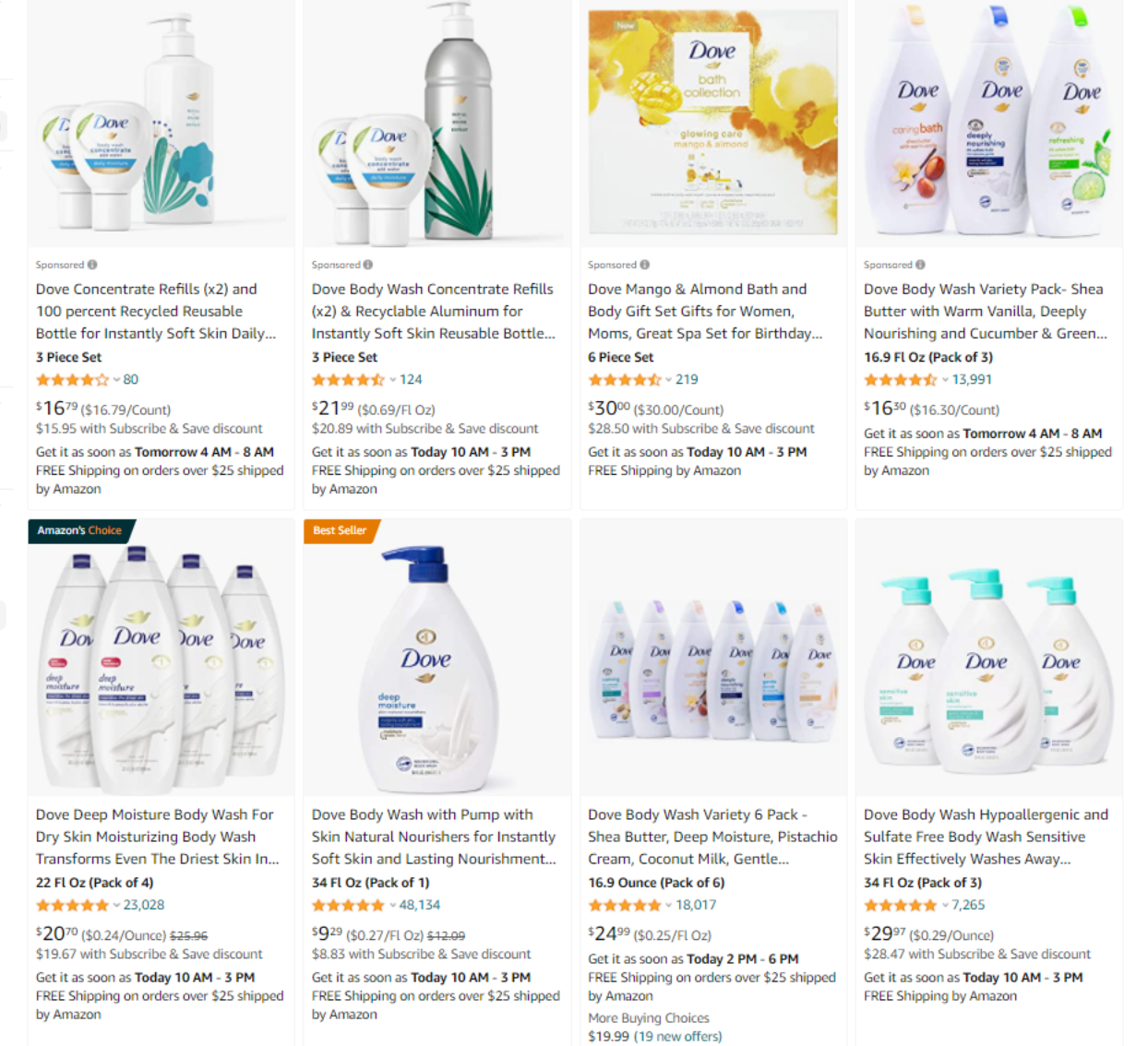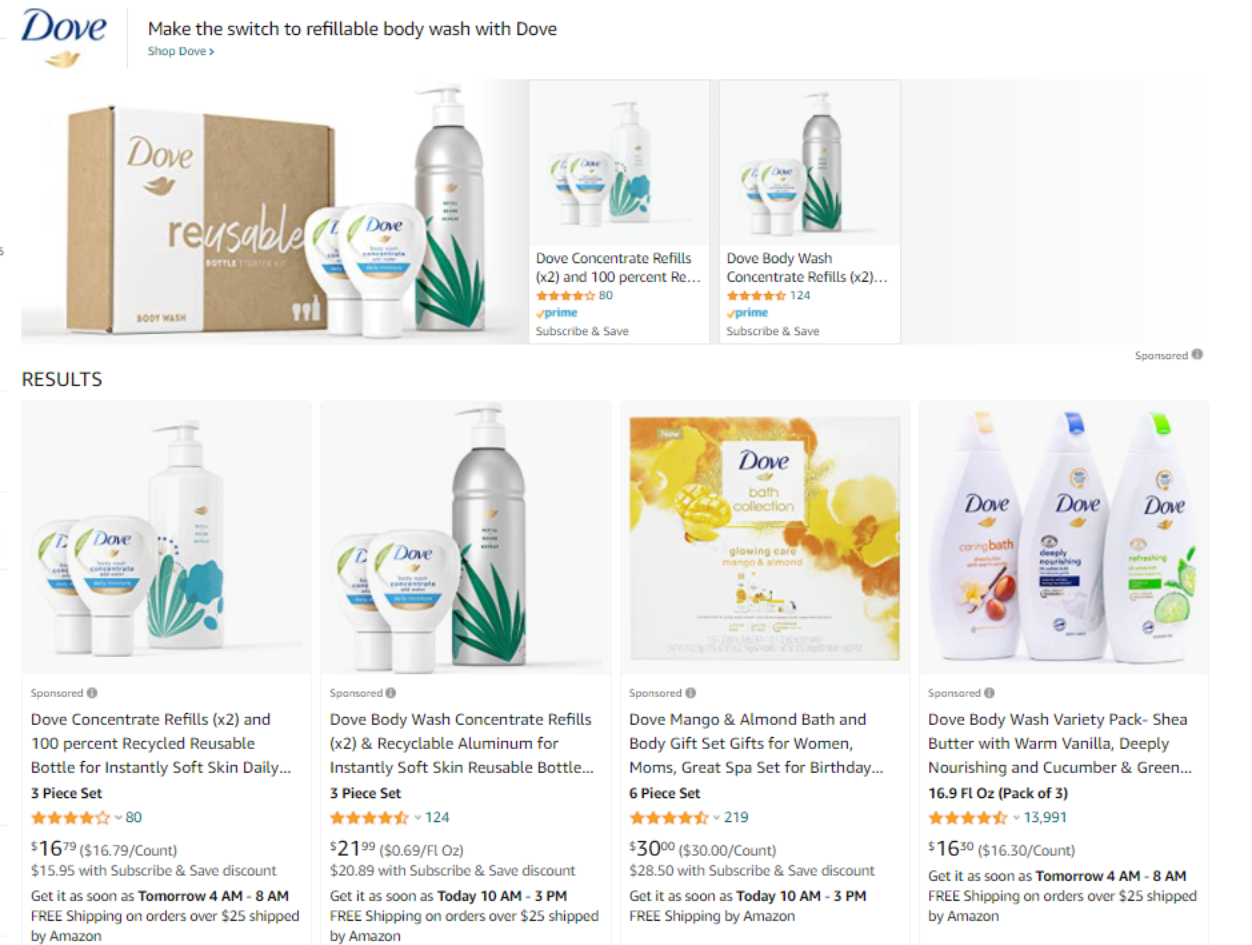Resources - Blog
Should You Bid on Your Own Brand Keywords?

Stay on top of the latest e-commerce and marketplace trends.
Advertising on Amazon is a highly effective way to drive sales, and it’s become a necessity for brands and sellers to drive consumer awareness and traffic to product detail pages. While bidding on category keywords and relevant product search terms is a no-brainer, don’t underestimate the importance of placing bids on your own brand keywords, as well.
Branded keywords are search terms or phrases that include your brand name, product names, or a variation of those names. If you’re wondering if you can and should bid on those brand keywords, the answer is yes, you can as Amazon allows this, and yes, you should because if you don’t, you could be losing converting customers to your competitors.
What is Brand Bidding?
Brand bidding refers to bidding on your own brand name or the names of your products as part of your Amazon PPC (pay-per-click) strategy. By bidding on these terms, your sponsored ads will show up at the top of the Amazon search result page when customers enter those terms in their searches.
When you bid on your own brand terms on Amazon, typically, your ad will appear right above your organic listings in search results. So you may be wondering, why would you pay for sponsored ads for your own brand when a customer is already searching for your brand anyway?
That’s an excellent question, so let’s explore the benefits of bidding on your own brand terms on Amazon and the disadvantages if you don’t.
Competitors could be bidding on your brand to make their way into search results and potentially steal your customers away.
Benefits of Brand Bidding on Amazon
If you run PPC campaigns on products that are already selling well on Amazon, you’re essentially turning your margin into ACOS (advertising cost of sale). And paying for traffic you could be getting for free may not make sense for your bottom line. But, if you don’t bid on your brand’s name, you could be facing challenges such as:
- Your least profitable products could be showing up first in search results.
- Newly launched products could take a while to gain traction in sales and search rankings.
- Competitors could be bidding on your brand to make their way into search results and potentially steal your customers away.
Now that you know what could happen if you don’t bid on your brand terms, let’s dive into the benefits of doing so and how it helps your products snag a top spot in the searches of your most likely-to-convert customers.
“One question I hear a lot from my clients is, ‘Should we bid on our own branded terms?’ Bidding on brand terms is not an uncommon practice! Brands should utilize this tactic on Amazon now more than ever before,” Valeria Lopez, Advertising and Operations Manager at Feedvisor.
Use Brand Bidding on Amazon to Upsell Products to Your Loyal Customers
Shoppers who search for your brand and specific products on Amazon are further down the sales funnel and more likely to buy from you than from a competitor. Therefore, you can leverage this advantage by bidding on your brand name with those ASINs that are your most profitable products, so those items show up higher up in search results than perhaps, your more popular but less profitable products.
For instance, when entering the search term “Dove Body Wash” on Amazon in the example below, you can see that the sponsored ads for Dove’s more expensive body washes appear above the lower-priced organically ranked items beneath it. This allows for upselling Dove’s loyal customers towards their pricier products.

“Bidding on brand keywords does not drain your revenue but helps protect your brand from the fierce competition on Amazon,” Valeria Lopez, Advertising and Operations Manager at Feedvisor.
Prevent Competitors From Stealing Your Customers on Amazon
If your brand is popular, competitors will try to take advantage of your success. While it’s against Amazon’s rules for brands to sponsor competitors’ brand keywords, unfortunately, it can still happen.
In the “Dove Body Wash” search example, you can see that Puracy Natural Body Wash appears as a sponsored ad on top. Puracy had likely bid on the Dove brand name and now is in a prime spot to steer customers away from Dove with its more attractive pricing.
This shows that if you don’t sponsor your own brand name, a competitor might. But keep in mind when competitors bid on another brand, it leads to low conversion rates. Especially with Amazon PPC ads, competitors would have to pay for lots of clicks before they could potentially secure a sale from another brand’s loyal customer.
So essentially, this strategy only makes sense for competing brands if the bid cost is low, which is not likely when there is more than one bidder. And when the bid cost rises, ACOS skyrockets, and this tactic is not so terrific anymore.
If you’re looking to fight off predatory advertising, all you need to do is introduce a low bid on your brand name. Typically, this should take your competitors’ ACOS to a level that’s not sustainable for them to continue bidding on.
By sponsoring a new product early on in its launch, you can actively ramp up its sales velocity.
Launch New Products with Brand Bidding on Amazon
Sales velocity plays a significant role in how Amazon’s algorithm picks which products to show first in search results. Therefore, when someone searches for your brand, your products are typically ranked in order by sales volume. But this can be a problem when your brand launches new products for which you want to gain traction.

In this example above, Dove bids on their newest product, Body Wash Concentrate Refills. The organic ranking for this product is currently on the third search result page, which is not the ideal position for a new product you want to push. But by using Amazon Sponsored Brands, this product is highlighted on the very top of the search results page, and by using brand bidding with PPC advertising, it also appears as one of the first sponsored ads.
By sponsoring a new product early on in its launch, you can actively ramp up its sales velocity, which will help the product climb its way up in organic rankings. When it achieves a top spot on Amazon, you can then reduce its ad spend and cash in on its profits.
Final Thoughts
Bidding on your own brand may seem like bad budgeting at first. But in many cases, it serves as an effective advertising strategy that helps keep your converting customers, upsell and introduce them to other items in your catalog, and helps ward off competitors from capitalizing on your brand.
